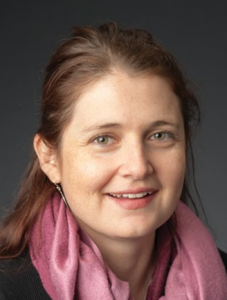

Blog

Sick leave – ways COVID has changed our lives #918
Wednesday October 13, 2021
Stay home when sick. Seems like such a no-brainer. Especially when we deal with patients who are already compromised and at risk, and when we see first-hand the complications of illness in a run-down immune system.
Yet medicine has always had a problem with sick leave. Hospital Health Check data shows us that prior to the pandemic, just 25 per cent of doctors in training (DiTs) would call in sick when unwell at some hospitals, with the highest performing still only staying home 42 per cent of the time.
Medicine should know better. We understand the medical benefits of staying home and resting when unwell. We know the wellbeing benefits of taking a mental health day when burnt out or processing something traumatic. Yet why are our non-medical friends so much better at this?
There are many reasons – some staffing related (not wanting to let an already understaffed and overworked team down), some cultural, and some patient-related (not wanting to cancel overbooked clinics or theatres).
Almost overnight, the COVID-19 pandemic – for better or worse – made it taboo to go to work when unwell. Even the slightest sniffle needs a negative swab and the thought of getting through a shift on a prescription of cough medicine, stubbornness and cold and flu tablets so as to not let the team down is a thing of the past.
Doctors have actually started calling in sick and while this is not only appropriate and long overdue, it is exposing gaping holes in our rostering systems.
Unlike nurses, there is no back-up agency that can provide skilled staff at short notice, and few teams have robust on-call systems for sick calls.
The acute on chronic hospital staffing crisis has meant that the already overstretched workforce is now having to plug these holes, and the strain is showing.
The pool of leave relievers dried up long ago, so what happens when a sick call is made? Some departments have on-call built into their roster. DiTs know who to call when unwell, which automatically triggers contact with the on-call person, who gets paid call-back rates. But this is rare.
In most cases, small teams who have no contingency will either have to ask other specialties to cross cover or get their workforce to consider days off (already as low as one a month in some areas) as really ‘on call’, which when spent within 20 minutes of the hospital, close to your phone, and unable to have a glass of wine, isn’t really all that restful.
Some medical workforce units will call every DiT in the phone book trying to find someone available to help out. The problems with these ‘solutions’ are obvious.
Burnt-out, tired docs with no real time off will make mistakes.
Ideally, employers would read the EBA, calculate how many weeks of leave they need to cover per year for each doctor, then employ a sufficient pool of doctors to cover predictable and unpredictable leave.
We are hundreds of doctors a year short of this, so are there other creative solutions available while we continue to advocate for safer staffing?
Yes, consider the following:
- A pool of GPs (registrars and fellows) known to and already familiar with each hospital who want to work overtime or keep up with their hospital skills and who may be available on short notice.
- Administrators or department heads who are willing to reduce or redirect activity when staffing becomes unsafe.
- Supernumery staff who can be agile to demands across more than one department
- Job descriptions available for those who do step in late.
While the AMA (WA) DiT team will continue to advocate for both better staffing and creative solutions, we need you to take care of yourselves, like we should have been doing all along. If you find yourself forced into an unworkable roster or situation, please, give us a call on (08) 9273 3000 or email mail@amawa.com.au ■

Dr Megge Beacroft
Co-Chair, AMA (WA) Doctors in Training Committee

